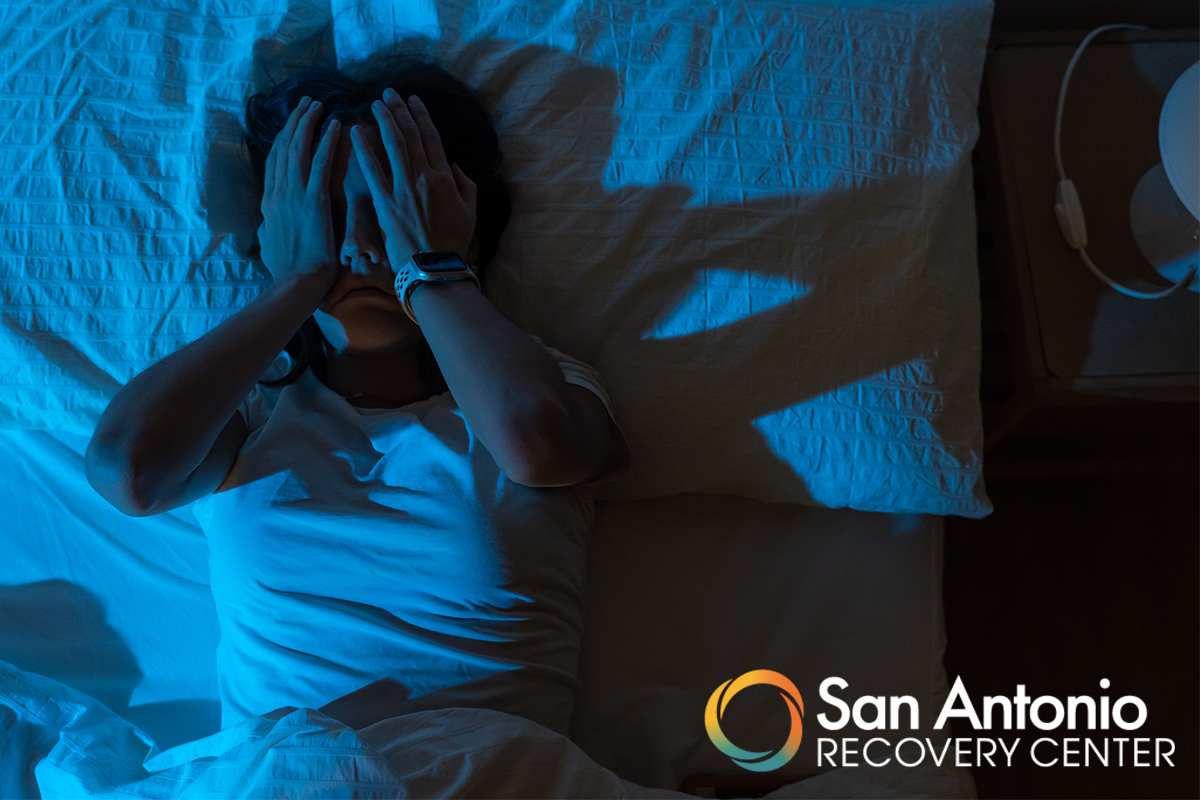
Substance use has a profound impact on our bodies and minds, often leading to long-term health consequences. Among the many side effects of substance use is insomnia.
Insomnia is a sleep disorder, characterized by the inability to fall and stay asleep or to feel rested even after getting a sufficient amount of hours. Insomnia can be short-term, lasting only for a few days or weeks, or it can be chronic, lasting for months or longer. Sleep is an important part of our well-being. Those with insomnia tend to have higher rates of heart issues and weakened immune systems. Psychologically, they may experience mood swings, irritability, or higher risks of depression and anxiety. Insomnia can also lead to serious impairment of day-to-day living through constant exhaustion and low energy levels.
Substance use can lead to insomnia in a variety of ways. Our bodies typically follow a specific daily pattern for sleep, often referred to as a circadian rhythm. When this pattern is interrupted, we find it difficult to sleep or feel rested. Substance use, and especially stimulants, leaves our brains unable to calm down late into the night, and can break us out of this rhythm.

When talking about the relationship between substance use and insomnia, stimulants have by far the greatest impact. Stimulants work by flooding the brain with certain chemicals, which lead to their hallmark symptoms of wakefulness, energy, and euphoria. This boost of chemicals can throw off our sleep patterns, as our brain attempts to release its own set of neurotransmitters to begin the process of sleeping.
Cocaine is a popular party drug and stimulant that has been shown to impact REM sleep for up to three days after the last dose. It disrupts sleep by flooding the brain with norepinephrine and dopamine, as well as stimulating the body’s “fight or flight” response. This artificial boost of stress and alertness can throw our body out of its circadian rhythm, especially if taken later in the day.
Meth is similar to cocaine in the way it works, though its stimulant effects may be amplified. Research suggests that methamphetamine could have a much stronger effect on sleep than cocaine, with more intense sleep disruption. Additionally, meth-induced insomnia may last longer than that from a cocaine use disorder.
Prescription stimulants can disrupt sleeping patterns in the same way as illicit ones. However, they face unique treatment obstacles. Those who take prescription stimulants may not realize that they can be as damaging to our sleep as illicit substances, due to the reduced overall effects. Additionally, while treatment for illicit stimulant insomnia begins with removing the substance completely, this may not be entirely possible in the case of necessary prescription medications.
Non-stimulant substance use can lead to insomnia as well. Antidepressants have been linked to insomnia, as have certain medications for Parkinson’s or Alzheimer’s disease. Other illicit substances, even depressants, may contribute. Heroin and other opioids are known to decrease sleep quality. Alcohol consumption significantly disrupts our sleep-wake cycles, and the stress of cravings can further prevent sleep. Any substance use disorder can seriously impact sleep, both from the chemical effects on the brain and the additional stress from the cravings or addiction.

Insomnia may seem harmless at first, but our bodies need sleep. Without it, the consequences very quickly become dire. From long-term health effects to day-to-day functioning, the costs are significant. When the underlying cause is a substance use disorder, it becomes necessary to find treatment before addressing the insomnia. Finding an effective drug detox center is a key part of this process.
You are not alone. At San Antonio Recovery Center, we are here for every step of your recovery journey. With an 8:1 patient-to-staff ratio, we make sure each of our clients gets the hands-on attention and care they need to fully recover. To learn more about how your partner can take those first steps today, connect with us at 866-957-7885.
Strength. Acceptance. Recovery. Community.
contact us now!
